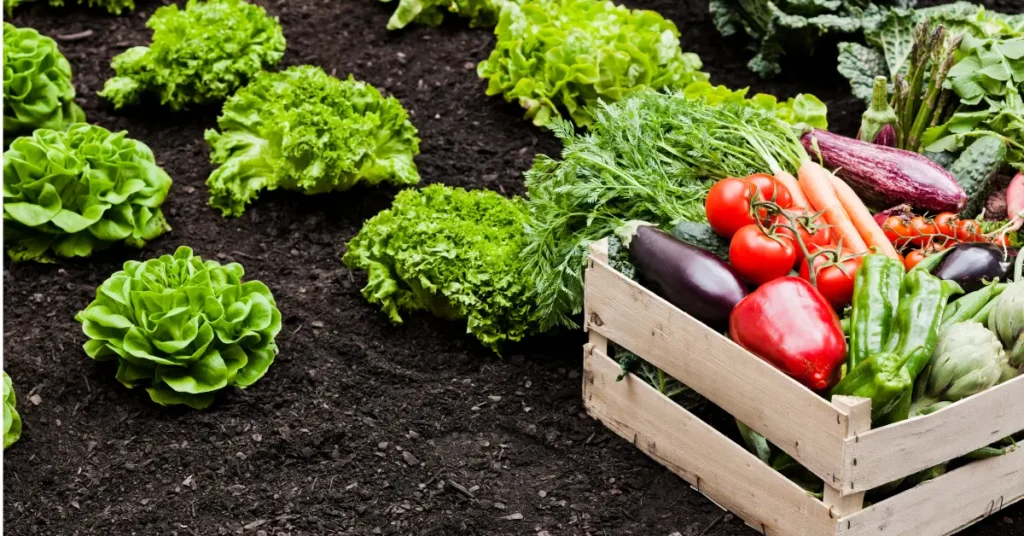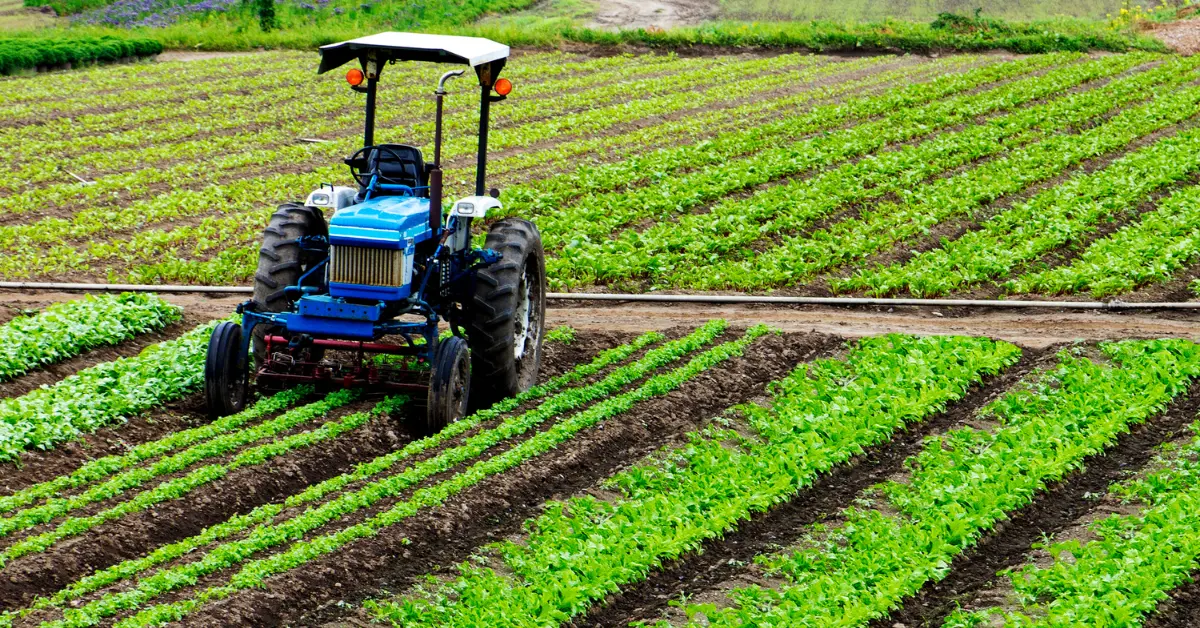Storage containers, typically recognized for their robustness and secure design, are increasingly finding a place in agriculture due to their adaptability and strength. Beyond their traditional use in shipping, these containers have become invaluable as farm storage containers. They can be easily modified to meet a variety of farming needs, from simple storage sheds to advanced, climate-controlled environments for sensitive agricultural products. Their standardized sizes and ability to withstand harsh conditions make them an excellent choice for farmers everywhere.

Types of Agricultural Storage Containers
Simple Tool Sheds
Simple tool sheds made from storage shipping containers are a popular choice among farmers for their straightforward and effective storage capabilities. These containers can be easily converted into secure spaces for storing hand tools, small machinery, and other farming supplies. The steel construction ensures that everything inside is protected from damage, while lockable doors provide security against theft. This type of container is particularly appealing for its ease of installation and low maintenance requirements.
Climate-Controlled Units for Sensitive Crops
For crops that require specific environmental conditions, climate-controlled storage for farms is essential. Equipped with advanced HVAC systems, these specialized containers meticulously regulate temperature and humidity to create an ideal storage environment. This controlled setting is crucial for a wide range of perishables, including fruits, vegetables, and flowers, which can suffer from quality degradation and reduced shelf life when exposed to adverse conditions. By stabilizing the internal climate, these units not only help preserve the freshness and nutritional quality of the produce but also extend the marketability period, allowing farmers to reach consumers with their products in optimal condition.
Furthermore, the technology behind these climate-controlled storage systems is continually advancing, integrating more sophisticated sensors and automated controls that can adapt to the specific needs of different types of produce. For example, some high-end systems now feature ethylene control technologies that can further extend the storage life of ethylene-sensitive crops like apples and tomatoes by slowing down their ripening processes. Modern units often include data logging capabilities, allowing farmers to monitor conditions remotely and receive alerts if parameters deviate from the set norms.
Ventilated Units for Dry Crops
Ventilated agricultural storage units are designed to keep dry crops like grains, beans, and nuts in optimal condition. These storage containers are specially modified to include ventilation systems that ensure a constant and consistent flow of air throughout the storage space. This air circulation is crucial for preventing the accumulation of moisture, which can lead to the growth of mold and mildew, detrimental to crop quality. Proper ventilation helps maintain an optimal environment by removing excess heat and moisture, thereby stabilizing internal conditions. At the crucial post-harvest times, when crops are most vulnerable to environmental influences, this is particularly crucial.
Modular Storage Solutions
These units can be stacked and connected to form larger storage complexes or used individually for smaller requirements. Such versatility makes modular containers ideal for farms that experience seasonal fluctuations in storage needs, allowing them to adjust their storage capacity quickly and efficiently as their inventory changes throughout the year.
Benefits of Storage Containers in Agriculture
Durability and Weather Resistance
The rugged construction of commercial storage units makes them exceptionally durable, and capable of withstanding severe weather conditions including high winds, heavy rain, and extreme temperatures. This resilience is crucial for agricultural settings where exposure to the elements is frequent. Farmers can rely on these containers to remain intact and protect their contents from environmental stressors, thus ensuring that both equipment and produce are kept in prime condition year-round.
Protection Against Pests and Theft
Portable storage solutions serve as an excellent barrier against pests and theft, two common threats in rural and agricultural areas. The solid steel walls and secure locking mechanisms of these containers deter rodents, insects, and other pests from accessing valuable seeds, feeds, and fertilizers. Here’s a breakdown of how storage containers achieve this level of security:
- Heavy-Duty Materials: Portable storage containers are constructed using high-quality, corrosion-resistant steel, which offers exceptional strength and durability. This type of steel is difficult to breach without specialized equipment, creating a robust barrier against unauthorized access. The resilience of the material ensures long-term protection from environmental elements and physical attacks, making it a reliable choice for safeguarding valuable agricultural resources. Moreover, the solid construction of these containers prevents structural degradation over time, maintaining their integrity and security features throughout their use.
- Sealed Entries: To enhance protection, storage containers are equipped with industrial-grade seals at every entry point. These seals are meticulously designed to fit tightly, eliminating any gaps where pests could potentially enter. By preventing the infiltration of rodents, insects, and other pests, these containers ensure that the contents remain uncontaminated and safe. The effectiveness of these seals in keeping out unwanted invaders is a critical feature for maintaining the quality and integrity of stored agricultural products. These sealed entries contribute to the overall durability and weather resistance of the containers, making them suitable for various environmental conditions.
- Locking Systems: Advanced and robust locking mechanisms are a key feature of portable storage containers. These systems are engineered to resist tampering and unauthorized access, providing a high level of security. The locks are designed to keep the doors securely fastened, even under forceful attempts to break in. This added layer of security is crucial for preventing the theft of valuable machinery, tools, and other resources.
- Customizable Security Features: Owners can further enhance the security of their storage containers by integrating customizable features such as alarms and CCTV systems. These advanced security measures offer real-time surveillance and immediate alerts in case of unauthorized access attempts. The ability to tailor security features to specific needs allows for a higher degree of protection and peace of mind. Owners can monitor their storage units remotely and respond quickly to any potential threats, ensuring the continuous security of their stored items.
By utilizing heavy-duty materials, sealed entries, robust locking systems, and customizable security features, these containers provide a comprehensive approach to protecting against both pests and theft.

Cost-Effectiveness and Scalability
Investing in rural storage containers is both cost-effective and scalable, making it an ideal choice for growing agricultural businesses. Initial costs are generally lower compared to constructing traditional storage buildings, and containers can be acquired incrementally as financial resources allow. Farmers may increase their storage capacity in line with their operational growth because of this scalability, which helps them avoid overspending that frequently results from greater upfront infrastructure investments.
Applications for Farm Equipment Storage
Shelving and Racks
Customizing storage containers by integrating shelving and racks drastically improves their utility, particularly in agricultural settings. Farmers often struggle with limited space and the need for efficient organization of tools and equipment. By installing customized shelving units within storage containers, they can significantly enhance the organization and accessibility of smaller tools and supplies. These shelving systems can be tailored to fit the unique dimensions and specific weight requirements of various agricultural tools. This ensures that each item is easily retrievable and securely placed, minimizing the risk of damage and the time spent searching for equipment. Incorporating advanced technology into these storage systems can further elevate their effectiveness. Smart shelving solutions, for instance, can be equipped with sensors that monitor the condition of the stored equipment and provide real-time data on usage and maintenance needs. This technology enables farmers to anticipate equipment failures and schedule preventative maintenance, avoiding costly downtime.
Efficiency in Harvest Equipment Storage
Harvest equipment storage solutions need to be not only spacious but also strategically organized to enhance operational efficiency. Custom fittings within these containers can be designed to securely hold each piece of machinery, significantly reducing the risk of accidental damage during storage or retrieval. Beyond mere spatial organization, the environmental aspects of storage also play a critical role in extending the service life of harvest equipment. By keeping valuable machinery shielded from adverse weather conditions, farmers can prevent rust and other forms of weather-related deterioration. This is particularly important for electronic components and other sensitive parts of modern agricultural equipment, which are susceptible to moisture and extreme temperatures. Regular maintenance tasks such as oiling and part inspections are more manageable when machines are stored in an accessible and orderly manner.
Relocatable Storage Units
Relocatable storage units are a boon for expansive and varied agricultural operations, offering unparalleled flexibility in managing space and resources. These units can be swiftly moved to different locations on a farm or entirely new sites, adapting seamlessly to the dynamic needs of agricultural businesses. Here are several advantages of using relocatable storage units:
- Immediate Availability: These storage units can be swiftly deployed across various parts of a farm as soon as the need arises. This rapid deployment is crucial in agricultural operations, where timing directly impacts crop yield and quality. By eliminating the lengthy processes associated with constructing or renovating permanent facilities, farmers can prioritize their core activities without delay. The ability to quickly access storage solutions when and where needed enhances operational efficiency and ensures that resources are protected during critical periods.
- Site Adaptability: Relocatable storage units are engineered to be placed on almost any type of terrain, whether it’s a hard, paved area or a softer, cleared section of farmland. This adaptability ensures that storage facilities can be conveniently located near fields or processing areas, reducing transportation time and costs. The units remain stable and functional regardless of the ground conditions, providing reliable crop storage solutions in diverse agricultural environments. Farmers may best utilize their storage facilities by taking into account geographical limitations and operational requirements due to this flexibility.
- Ease of Transportation: Equipped with features such as skids or pre-installed lifting points, these units are designed for easy movement using standard farm machinery like tractors or forklifts. This mobility enables quick reconfiguration of storage arrangements as seasonal or operational needs evolve. The ease of transportation ensures that farmers can efficiently relocate storage units to different parts of the farm, enhancing productivity and resource management.
These containers provide a practical and efficient solution for dynamic farming environments where the quick reassignment of storage locations can lead to better resource allocation and increased productivity. Their use can particularly benefit large-scale farms where distances between fields and storage facilities might otherwise lead to inefficiencies.
Renting vs. Buying Storage Containers
Practicality of Renting
This allows for the conservation of capital, which can be particularly beneficial for smaller or start-up agricultural operations that may not have the funds to invest in permanent structures. Renting provides the flexibility to upscale or downscale according to seasonal requirements and financial constraints, enabling farmers to manage their budget more effectively without compromising on storage quality or capacity.
Flexibility for Seasonal Requirements
During peak harvest times, additional storage space is often necessary to house increased volumes of produce, equipment, or supplies. Renting additional containers during these periods can provide the necessary storage capacity without the long-term commitment or expense of permanent facilities. Once the peak season is over, these rented units can be returned, thus optimizing cost efficiency.
Pros and Cons of Long-Term Commitment
Deciding whether to buy or rent a shipping container for storage involves considering the long-term financial and operational impacts. Buying containers can be a sound investment that pays off over time, particularly for established farms with stable and ongoing storage needs. Ownership eliminates ongoing rental costs and offers the opportunity to customize the units extensively. However, as emphasized before, purchasing requires a significant initial outlay and may not provide the same level of flexibility as renting. Farmers must weigh these factors based on their current and anticipated future needs to determine the best strategy for their specific circumstances.

The future of agricultural shipping containers for storage looks promising, with ongoing innovations in container technology and farming practices. As more farmers recognize the value of these versatile storage options, further customizations, and improvements will likely emerge to better meet the specific needs of the agriculture industry. Additionally, the trend towards sustainability may drive the development of more environmentally friendly containers, enhancing their efficiency and reducing the carbon footprint associated with traditional farming operations.

 Receive a Quick Quote
Receive a Quick Quote


 ” -Zachary
” -Zachary